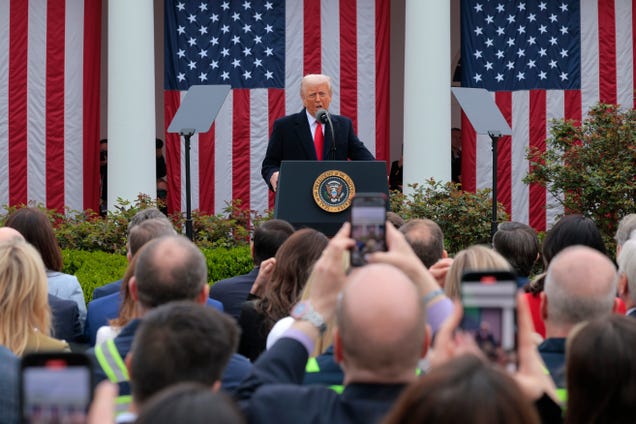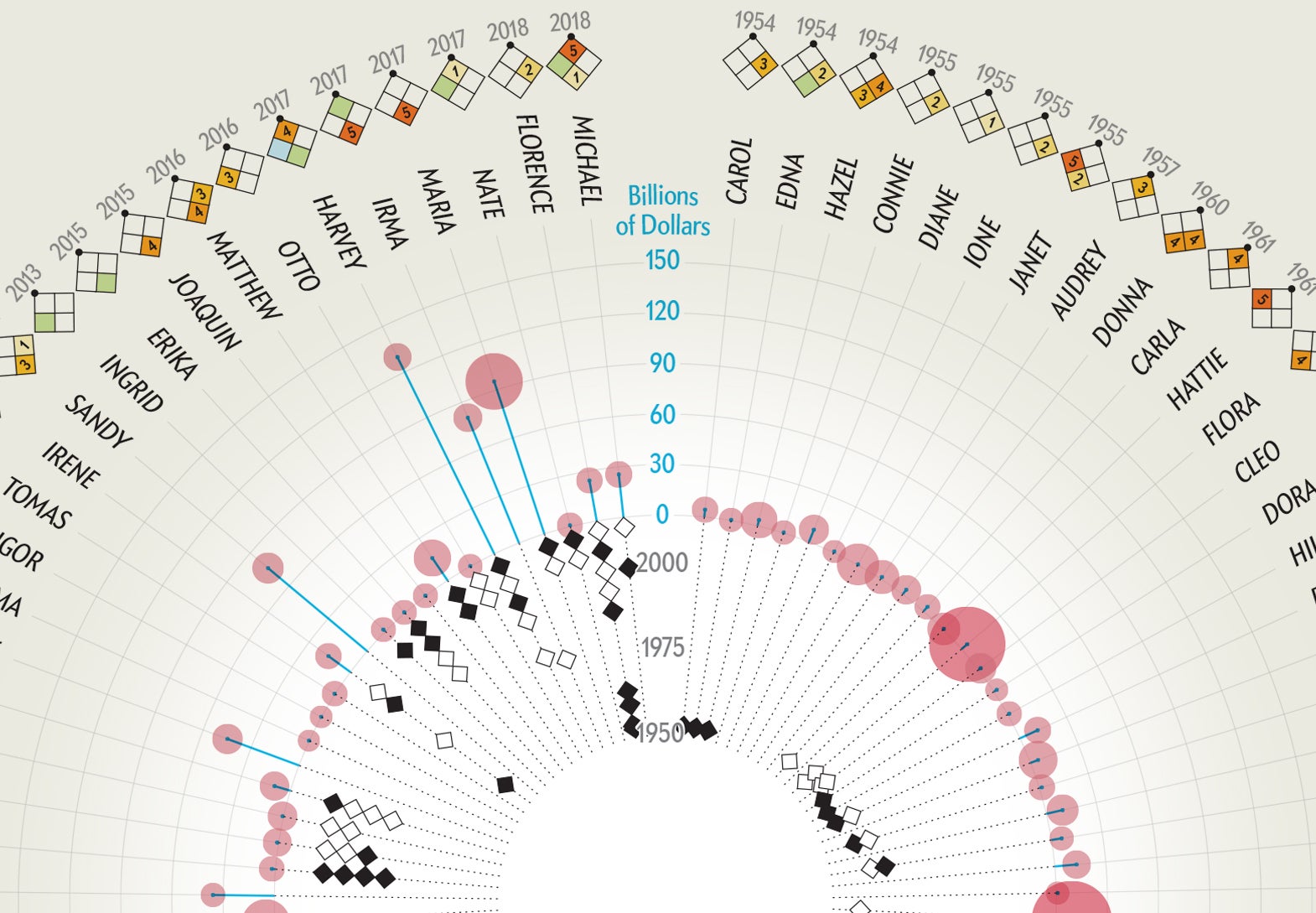President Donald Trump has finally announced his reciprocal tariffs, which are set to hit every country that trades with the U.S. — and will likely hurt American consumers
The president said his tariffs will be applied on a country-by-country basis, with the U.S. calculating the combined rate of tariffs, non-monetary barriers, “and other forms of cheating.” The U.S. will then charge those countries “approximately half” of their own charges, Trump said.
China, for example, will be hit with 34% tariffs, while the European Union will be slapped with 20% duties, according to a graph Trump held up at a news conference. Vietnam, Taiwan, and Japan will be hit with respective duties of 32%, 24%, and 26%. A minimum baseline tariff of 10% will be put on imports from all other countries, Trump added.
Trump has promised that his reciprocal tariffs will rectify years of unfair trading practices that have driven up goods trade deficits, which the president has said make the U.S. seem weak. In 2024, the U.S. trade deficit in goods hit a record $1.2 trillion.
“April, 2, 2025, will forever be remembered as the day American industry was reborn, the day America’s destiny was reclaimed, and the day that we began to make America wealthy again,” Trump said from the White House’s Rose Garden, describing his tariffs as the “declaration of economic independence.”
The baseline 10% tariffs will go into effect Saturday at 12:01 a.m. ET. The reciprocal levies are scheduled for April 9 at 12:01 a.m. ET.
The announcement alleviates, for now, some of the uncertainty that has plagued Wall Street investors, small businesses, and major corporations alike as they waited for the White House to settle on the next steps in Trump’s growing trade war. But escalation is likely still on the table, as the president has repeatedly made clear — along with retaliation by countries hit with new levies.
Goldman Sachs (GS-7.13%) economists recently increased their forecasted odds of a recession over the next 12 months to 35%, from 20%.
Peter Navarro, a senior Trump trade adviser, has said tariffs will raise $600 billion each year, which would amount to the largest tax hike in U.S. history.
“Tariffs are a tax paid by the U.S. importer that will be passed along to the end consumer,” National Retail Federation executive David French said in a statement, adding that the duties will have a “disproportionate impact” on local communities and hurt small retailers.
Small businesses have been particularly worried because they lack the resources to effectively track major changes and adjust their pricing or sourcing, Netstock CEO Ara Ohanian said in an email. Seventy percent of small businesses recently surveyed by Netstock cited rising costs as their biggest challenge stemming from tariffs.
The S&P 500 Index, Nasdaq Composite, and Dow Jones Industrial Average were slightly up when the markets closed Wednesday, but are down year-to-date.














